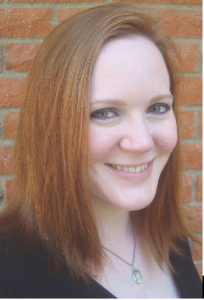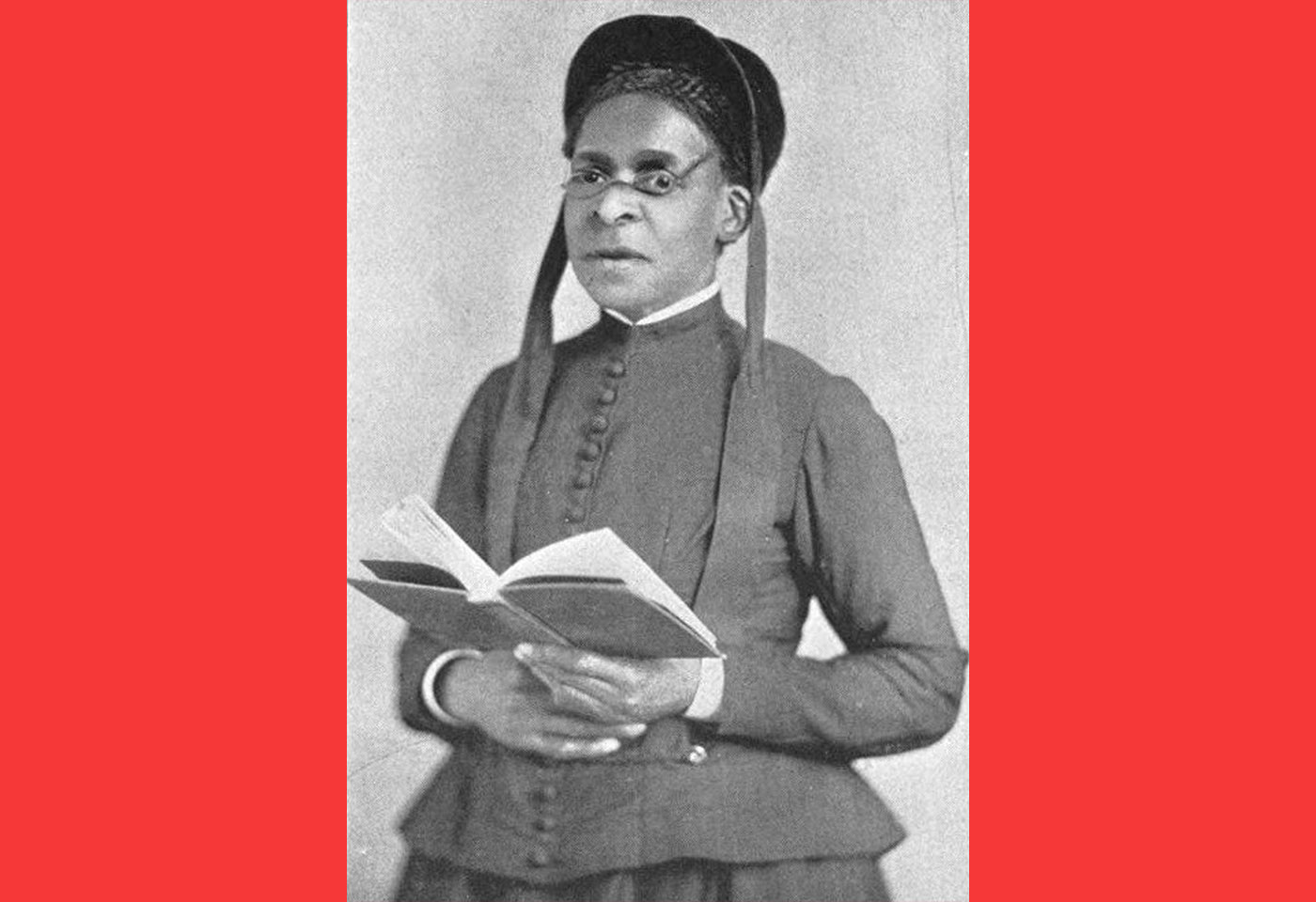Julia Foote and the Geography of Witness
By Elizabeth Glass Turner – 2021 –
What do you know of Zanesville, Ohio? History buffs might enjoy its distinct Y-shaped bridge or explore its history as part of the Underground Railroad or recall it for its well-known river and locks. If a spiritual pilgrimage were traced across the tilts and rolls of Ohio’s farms, rivers, and valleys, Methodists might mark a gentle circle around Zanesville. It’s not unique for towns that sprang up across the Midwest to have Methodist fellowships woven through their roots; but those Methodist fellowships in the mid-1800s were not without profound flaws.
In the autobiography of Julia Foote – happily available for download through Asbury Theological Seminary’s First Fruits Press – readers are confronted with this reality. On joining the local Methodist Episcopal church (in the state of New York), her parents, both former slaves, were relegated to seating in one part of the balcony of the local church and could not partake of Holy Communion until the white church members, including the lower class ones, had gone first.
Eventually, Julia Foote would become the first woman ordained a deacon in the AME Zion church, the second woman ordained an elder. Before that, she was an evangelist, traveling and preaching in a number of places, starting before the Civil War. At times, congregational conflict emerged when she visited a town, sometimes because Foote was Black, sometimes because she was a woman. But the testimony of her visit to Zanesville is different.
Before arriving in Zanesville in the early 1850’s, Foote had been in Cincinnati and Columbus, then visited a town called Chillicothe. Her time in Chillicothe was fruitful but not without controversy.
The following excerpts retain Foote’s own original language, a reflection of the time in which she lived:
“In April, 1851, we visited Chillicothe, and had some glorious meetings there. Great crowds attended every night, and the altar was crowded with anxious inquirers. Some of the deacons of the white people’s Baptist church invited me to preach in their church, but I declined to do so, on account of the opposition of the pastor, who was very much set against women’s preaching,” she wrote. “He said so much against it, and against the members who wished me to preach, that they called a church meeting, and I heard that they finally dismissed him. The white Methodists invited me to speak for them, but did not want the colored people to attend the meeting. I would not agree to any such arrangement, and, therefore, I did not speak for them. Prejudice had closed the door of their sanctuary against the colored people of the place, virtually saying: ‘The Gospel shall not be free to all.’ Our benign Master and Saviour said: ‘Go, preach my Gospel to all’” (Julia A. J. Foote, A Brand Plucked from the Fire: An Autobiographical Sketch, First Fruits Press).
Whether or not the good Baptists of Chillicothe today know that their forebears ousted a pastor who objected to a woman evangelist, the Methodists may be unaware that their forebears invited a Black woman to preach – but only if people of color were excluded from the meeting. And yet, in spite of these local controversies, Julia Foote wrote that in that town, “we had some glorious meetings,” and “the altar was crowded.” Like John Wesley, Foote sowed grace outside church buildings, even if she could not sow grace inside church buildings. Like the Apostle Paul, she proclaimed the Gospel to those who would welcome her.
But then, she went to Zanesville. And here, readers see a different move of the Holy Spirit. What was the difference?
“We visited Zanesville, Ohio, laboring for white and colored people. The white Methodists opened their house for the admission of colored people for the first time. Hundreds were turned away at each meeting, unable to get in; and, although the house was so crowded, perfect order prevailed,” Foote wrote in A Brand Plucked. “We also held meetings on the other side of the river. God the Holy Ghost was powerfully manifest in all these meetings. I was the recipient of many mercies, and passed through various exercises. In all of them I could trace the hand of God and claim divine assistance whenever I most needed it. Whatever I needed, by faith I had. Glory! glory!! While God lives, and Jesus sits on his right hand, nothing shall be impossible unto me, if I hold fast faith with a pure conscience.”
Foote labored for any and all for the sake of the Kingdom when she arrived in Zanesville. While there, for the first time, Methodist worship was integrated. So many people came, hundreds had to be turned away. Despite the crowds, there was no controversy or dispute. And – “God the Holy Ghost was powerfully manifest in all these meetings.” There was no segregated worship; the Holy Ghost was powerfully manifest.
This is powerful testimony reverberating down through the soil, through the generations, through the Kingdom. Sitting today in a different part of the state over 150 years later, I read the words of Julia Foote and see the rolling hills of Ohio differently. I’ve been in Cincinnati, and Columbus, and Chillicothe. I’ve read those names on road signs. I’ve seen church buildings in those places. Through her words, I hear the voice of a mother of American Methodism, particularly the holiness movement, calling across the rivers, the years. She was pressed, but not crushed; persecuted, but not abandoned; struck down, but not destroyed. Her eyes too saw this rural landscape in the springtime; heading from Zanesville on to Detroit, she also likely saw Mennonite and Amish farmers along the road. She sowed grace into this landscape before my great-grandmother was born. Before the Wright brothers followed the birds skimming along air currents, Julia Foote learned how to glide on the wind of the Spirit: “whatever I needed, by faith I had.”
Today, in the yard outside my window, irises are blooming that I did not plant; someone else planted, another watered, and I enjoy the deep purple unfurling from the bud. Reading of Foote’s ministry, I am given a window onto the grace planted by faith, the results of which would have shaped the spiritual life of a community for decades. But it does not let me rest on what came before; her labor calls out across the rivers, the years, questioning: how are you tending to what others planted through the Spirit? She endured great hardship to proclaim the Word of God in this landscape. I would not rip out or mow over the irises carefully planted by another; how might I help to care for what she was bold enough to sow? Decades later – and yet not so very long at all – where is the Spirit brooding, full, like a thundercloud full with rain, ready to burst?
 Sister Julia issued this challenge: “Sisters, shall not you and I unite with the heavenly host in the grand chorus? If so, you will not let what man may say or do, keep you from doing the will of the Lord or using the gifts you have for the good of others,” she wrote in A Brand Plucked. “How much easier to bear the reproach of men than to live at a distance from God. Be not kept in bondage by those who say, ‘We suffer not a woman to teach,’ thus quoting Paul’s words, but not rightly applying them. What though we are called to pass through deep waters, so our anchor is cast within the veil, both sure and steadfast?”
Sister Julia issued this challenge: “Sisters, shall not you and I unite with the heavenly host in the grand chorus? If so, you will not let what man may say or do, keep you from doing the will of the Lord or using the gifts you have for the good of others,” she wrote in A Brand Plucked. “How much easier to bear the reproach of men than to live at a distance from God. Be not kept in bondage by those who say, ‘We suffer not a woman to teach,’ thus quoting Paul’s words, but not rightly applying them. What though we are called to pass through deep waters, so our anchor is cast within the veil, both sure and steadfast?”
The gifts you have, for the good of others.
It is the Holy Spirit who transforms history into testimony, the same Spirit who was “powerfully manifest” now bearing down, laboring again. In the original introduction to A Brand Plucked, Thomas K. Doty wrote, “Those of us who heard her preach, last year, at Lodi, where she held the almost breathless attention of five thousand people, by the eloquence of the Holy Ghost, know well where is the hiding of her power.”
What do you know of Zanesville, Ohio? That Julia Foote preached there in the 1850s, sowing grace? That Methodists there rejected segregated worship, joining together, and the Holy Spirit was “powerfully manifest”?
What do you know of the Holy Spirit, today? What do you know of those who planted and watered while God gave the increase, long before you saw the buds?
Sisters and brothers, we do not walk into ministry alone today. Wherever you are, someone has gone ahead, sowing grace ahead of you. If the rivers could speak, they might gossip to you about the ones who went before; who crossed rivers when no plane had yet crossed the sky.
What do you know of Zanesville, Holy Spirit? Hearts there once were soft.
What do you know of the Holy Spirit, Zanesville? Once, the Spirit was powerfully manifest in your midst.
Holy Spirit, where are you brooding now? Give us the grace of readiness..
Elizabeth Glass Turner, a frequent contributor to Good News, is the editor of Wesleyan Accent (www.WesleyanAccent.com). This article is reprinted by permission of Wesleyan Accent.






0 Comments